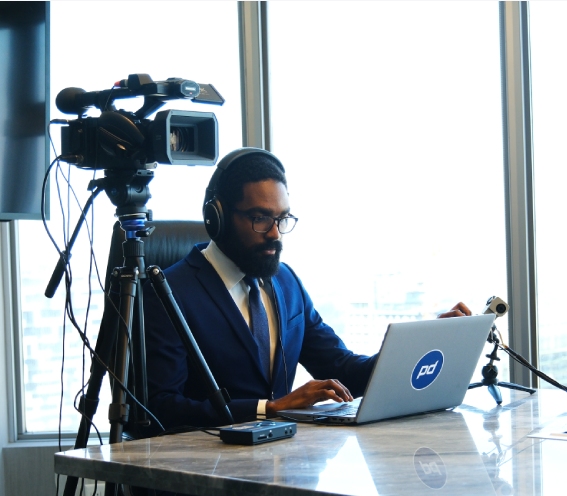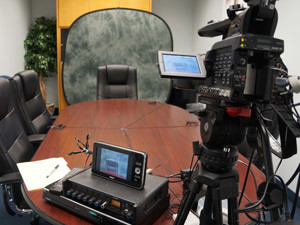The role of legal videographers in ensuring compliance with legal video standards
Discovering the Different Kinds Of Legal Videographers and Their Distinct Offerings
Legal videographers play a crucial role in the judicial procedure, each focusing on distinctive facets of courtroom documentation. Their know-how ranges from capturing witness statements to improving test discussions. Comprehending the different offerings of these professionals can illuminate their payments to legal proceedings. As the complexities of modern litigation grow, the value of their functions becomes significantly noticeable. What specific functions do these videographers serve, and exactly how do they affect the results of instances?
Recognizing Legal Videography
Legal videography plays a necessary role in the judicial process, giving aesthetic paperwork that can boost the quality and accuracy of legal proceedings. This specific area entails recording video clip recordings of numerous legal events, such as trials, hearings, and various other considerable minutes within the legal system. Legal videographers use innovative tools and strategies to ensure premium footage, which can serve as vital evidence during litigation.Understanding legal videography requires identifying its significance in conveying information in a visual style. The taped footage can help courts and judges much better understand the context and subtleties of statements and events, potentially influencing judgments. Furthermore, legal videographers should stick to rigorous standards and criteria to maintain the integrity of the recordings. Their work not just help in maintaining an in-depth account of procedures yet additionally adds to the total transparency and liability within the legal structure, ensuring that justice is offered effectively.
Deposition Videographers
Deposition videographers play a crucial duty in legal procedures by tape-recording witness testaments for future recommendation. They make use of customized equipment and strategies to assure premium video paperwork that precisely captures the nuances of each deposition. Recognizing their techniques and the importance of their work can boost the performance of legal discussions.
Function in Legal Proceedings
While frequently overlooked, the duty of videographers in legal process is crucial, especially during depositions. These professionals document witness testimonies, capturing both spoken and non-verbal cues that can be crucial in court. Their recordings function as a precise depiction of the deposition, giving a dependable referral for attorneys and juries. Videographers guarantee that the setting is specialist, minimizing distractions and adhering to legal standards. They are trained to take care of different scenarios, consisting of unexpected disruptions or technical problems, safeguarding the honesty of the taped material. Additionally, the presence of a videographer can discourage evasive habits from witnesses, promoting even more honest actions. Overall, their payments significantly boost the clarity and performance of legal process.
Tools and Techniques Utilized
The devices and methods utilized by deposition videographers are vital for creating high-quality recordings that accurately catch witness testimonies. Professional-grade cameras, often with 4K resolution, assurance clear visuals, while high-fidelity microphones record sound without distortion. Videographers normally use tripods for stability and illumination devices to enhance presence, especially in less-than-ideal setups. Strategies such as mounting the witness appropriately and preserving proper angles are vital for conveying body movement and expressions. Lots of deposition videographers additionally utilize electronic modifying software application to improve the final product, guaranteeing quality and coherence. Furthermore, they might include time-stamping and notes during post-production to help with reference throughout legal procedures, eventually supplying an extensive and dependable document of the deposition.
Trial Discussion Videographers
Test presentation videographers play an important role in court room settings by properly imagining evidence and boosting the storytelling process. Using sophisticated innovation and specialized equipment, they produce engaging discussions that assist juries and judges grasp intricate info. Their knowledge in efficient storytelling techniques better raises the impact of legal disagreements during tests.
Duty in Court Room Settings
Regularly, legal videographers play an important function in courtroom settings by catching and providing visual evidence that improves the quality of legal debates. These experts concentrate on documenting witness testimonies, depositions, and important proof, making certain that the proceedings are precisely videotaped for future reference. Their job not only help in the prompt presentation of instances however additionally works as a beneficial source throughout appeals or evaluations. Trial presentation videographers diligently compile and modify video to develop engaging visual stories that attorneys can utilize to encourage judges and courts. By incorporating aesthetic components into the trial, they greatly add to the overall effectiveness of the legal procedure, assisting in an extra enlightened decision-making environment within the court room.
Modern Technology and Devices Used
Modern trial discussion videographers count on sophisticated technology and specialized tools to properly record and present evidence in the court room. High-def cameras are commonly made use of to assure that every information is recorded with clarity, while numerous cam angles can enhance the aesthetic story. Videographers regularly make use of cordless microphones to catch clear audio from witnesses and attorneys, minimizing interruptions. Additionally, innovative software devices enable real-time editing and seamless assimilation of video, pictures, and displays during presentations. Projectors and big displays are frequently used to show web content in an interesting way, making certain that jurors and courts can quickly follow the procedures. This mix of innovation and tools is vital for developing impactful courtroom discussions that assist in understanding and retention of info.
Reliable Storytelling Strategies
Capturing high-grade video and audio is just the beginning for test presentation videographers; efficient storytelling techniques play a critical function in conveying complicated legal stories. These professionals use different approaches to boost the clarity and impact of the product provided. By very carefully structuring the aesthetic and audio aspects, they create a systematic flow that guides jurors through the facts of the case. Using techniques such as thematic framing, sob story, and logical development, they stress bottom lines and strengthen the general argument. Additionally, integrating visuals, such as layouts or animations, can streamline intricate ideas and maintain the audience involved. Eventually, trial presentation videographers change raw footage into compelling stories that resonate with jurors, facilitating notified decision-making in the courtroom.
Video Proof Specialists
Video clip proof specialists play an important role in the legal procedure, making certain that aesthetic recordings are accurately caught, preserved, and provided in court. These experts are educated to take care of a range of tape-recording equipment and methods customized particularly for legal setups. They focus on obtaining top quality recordings that can withstand examination, sticking to rigorous procedures to keep the honesty of the evidence.Often involved in the documents of crime scenes, depositions, and witness statements, video proof experts are competent in creating footage that is both clear and reliable. They are also knowledgeable about legal standards and demands, ensuring that their work adheres to administrative guidelines. Additionally, these professionals may assist in the post-production process, editing and enhancing and formatting video clips for finest presentation. Their experience aids lawyers in effectively communicating their instances, making the function of video evidence professionals crucial in the search of justice.
Court Videographers
While the court room typically works as the phase for important legal process, court room videographers guarantee that these minutes are documented with accuracy and clarity. Their main duty is to catch all elements of a trial, consisting of witness testaments, opening and closing declarations, and jury reactions. Utilizing specific equipment, courtroom videographers ensure that audio and video quality fulfill the standards required for legal documentation.These specialists are skilled at the workplace unobtrusively within the court setting, maneuvering with the necessary site web procedures and keeping the honesty of the legal process. They usually team up carefully with attorneys to comprehend certain demands, making certain that essential components are videotaped for future reference.Furthermore, court videographers play an essential role in preserving the credibility of the procedures, offering a vital resource for charms or more legal actions. Their know-how guarantees that all recorded product serves as a reputable account of the court room occasions for all events entailed.

Post-Production Solutions and Editing And Enhancing

After the courtroom proceedings are videotaped, the focus changes to post-production services and editing, which play a substantial function in refining the recorded product. Legal videographers use specialized software to improve video clip top quality, guaranteeing clarity and professionalism and reliability. This stage frequently includes color modification, audio improvement, and the elimination of any supplementary video footage, producing a meaningful story that straightens with legal standards.Additionally, videographers may incorporate graphics, link comments, or captions to offer context or highlight crucial information. The modifying process also includes organizing the footage chronologically or thematically, making it simpler for legal groups to reference certain segments throughout trials or depositions. Legal videographers commonly prepare last edits in different styles to suit various platforms and usages, ensuring access for all stakeholders involved. Eventually, reliable post-production services are important for creating high-quality legal videos that sustain the case at hand.
Often Asked Concerns
What Certifications Should I Seek in a Lawful Videographer?

Just How Do Legal Videographers Ensure Video Clip Quality and Integrity?
Legal videographers guarantee video clip high quality and dependability through high-def tools, careful lights, and audio monitoring - legal videographers. They additionally stick to legal standards, make use of back-up systems, and perform detailed pre-production planning to lessen possible problems throughout recordings
What Devices Do Legal Videographers Generally Utilize?
Legal videographers usually make use of high-definition electronic cameras, tripods for stability, exterior microphones for clear sound, and lighting devices to improve exposure. They might also utilize modifying software program Source to assure sleek and specialist end products for legal process.
How much time Does the Editing And Enhancing Process Usually Take?
The modifying process for legal videographers normally varies, ranging from a few hours to numerous days. Elements such as video clip intricacy, needed high quality, and details customer requests considerably influence the general time dedication needed for conclusion.
Are Legal Videographers Aware Of Court Room Decorum?
Legal videographers usually have a solid understanding of courtroom rules - legal videographers. Their training typically includes knowledge of proper actions, equipment positioning, and regard for legal proceedings, guaranteeing their work straightens with the official environment of the courtroom